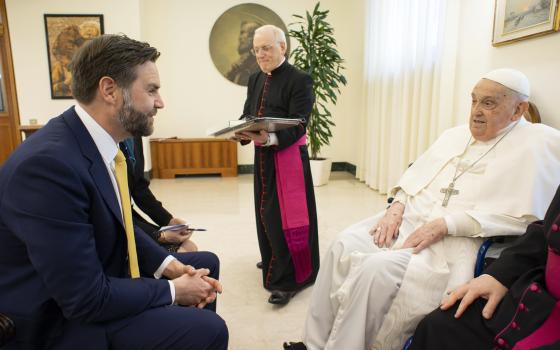In the Washington Post, E.J. Dionne discusses President Donald Trump's ability to get away with things that are unprecedented, likely illegal, and a threat to the nation's security. The two-party system works well, but when there is a constitutional threat like this, it fails unless men and women in both parties rise to the moment. But every time I think the GOP might stand up for the Constitution, I feel like Charlie Brown getting ready to kick the football held by Lucy.
On the other hand, Trump's apparent willingness to ask Ukraine to investigate a potential rival, former vice president Joe Biden, may have crossed the line of constitutional behavior so egregiously, could this be the moment Republicans in Congress stand up? If nothing else, every one of their opponents can look back to the comments of congressional Republicans who support Trump after the Mueller Report came out. They all said, mistakenly, that the report proved there was no collusion, and therefore the president did nothing wrong; and if the report had indicated otherwise, they would have insisted the president be removed from office. Well, now he admitted collusion with Ukraine. What do they say now?
In the New Yorker, John Cassidy looks at some of the arguments for, and against, Sen. Elizabeth Warren's proposed wealth tax. Here is the, pardon the expression, money quote:
If you believe, as Barack Obama said in 2013, that rising inequality is the defining issue of our time, you are obliged to try to do something about it. Warren has taken up the challenge, and the enactment of her wealth tax would be a historic step, akin to the introduction of the personal income tax, in 1913. Properly enforced and supported by other measures, such as meaningful campaign-finance reform and an effective antitrust policy, the new tax could help reverse America's descent into plutocracy.
It is not only that the money the tax would generate could pay for important socially necessary programs, it is that a wealth tax shrinks some of the inequality which Pope Francis has labeled "the root of all social evil."
Advertisement
At Politico magazine, a look at Warren's challenging relationship with Obama's economic team as she urged them to approach the economic recovery from the bottom up, not by starting with the big banks. They ignored her advice, as we well know. What is fascinating in this piece is the combination of pragmatism and idealism that characterized Warren's efforts. Also fascinating is this comment from former Sen. Harry Reid:
"One thing about her conversations with Summers and with Geithner, they couldn't talk over her head," says Reid, adding that Summers, a former Treasury secretary and president of Harvard University, wasn't used to that. "I met with Summers many, many times and, frankly, he talked about a lot of things I didn't quite comprehend. But with her, that wasn't the case."
Not sure this will win her any friends on Wall Street, and I am betting former Treasury Secretaries Tim Geithner and Larry Summers will both vote for someone else. But this article makes me think Warren is the person to strike at the root of neo-liberal economic policies.
At EWTN, the attacks on Pope Francis are not limited to Raymond Arroyo and his papal posse. In this sermon at daily Mass, Fr. Matthew Mary cites the National Catholic Register's coverage of the pope's interview on the plane from Africa and on the upcoming synod, and applauds the call by Cardinal Raymond Burke and Auxiliary Bishop Athanasius Schneider for a prayer vigil to prevent the "heresies" they claim are contained in the synod's working document. Sometimes people tell me, "Yes, Arroyo is out of control, but EWTN brings daily Mass into the homes of millions of people, so we must weigh the good with the bad." Well, if this is the kind of sermons we can expect at those daily Masses, we have a problem.
At Religion News Service, Adelle Banks marks the anniversary of Frank Lloyd Wright's Beth Shalom Synagogue in Elkins Park, Pennsylvania. This architectural achievement is an obvious rebuttal to those who disparage modern art as incapable of beauty, and Banks unravels some of the interesting history behind the building's design and construction.
[Michael Sean Winters covers the nexus of religion and politics for NCR.]
Editor's note: Don't miss out on Michael Sean Winters' latest. Sign up and we'll let you know when he publishes new Distinctly Catholic columns.





